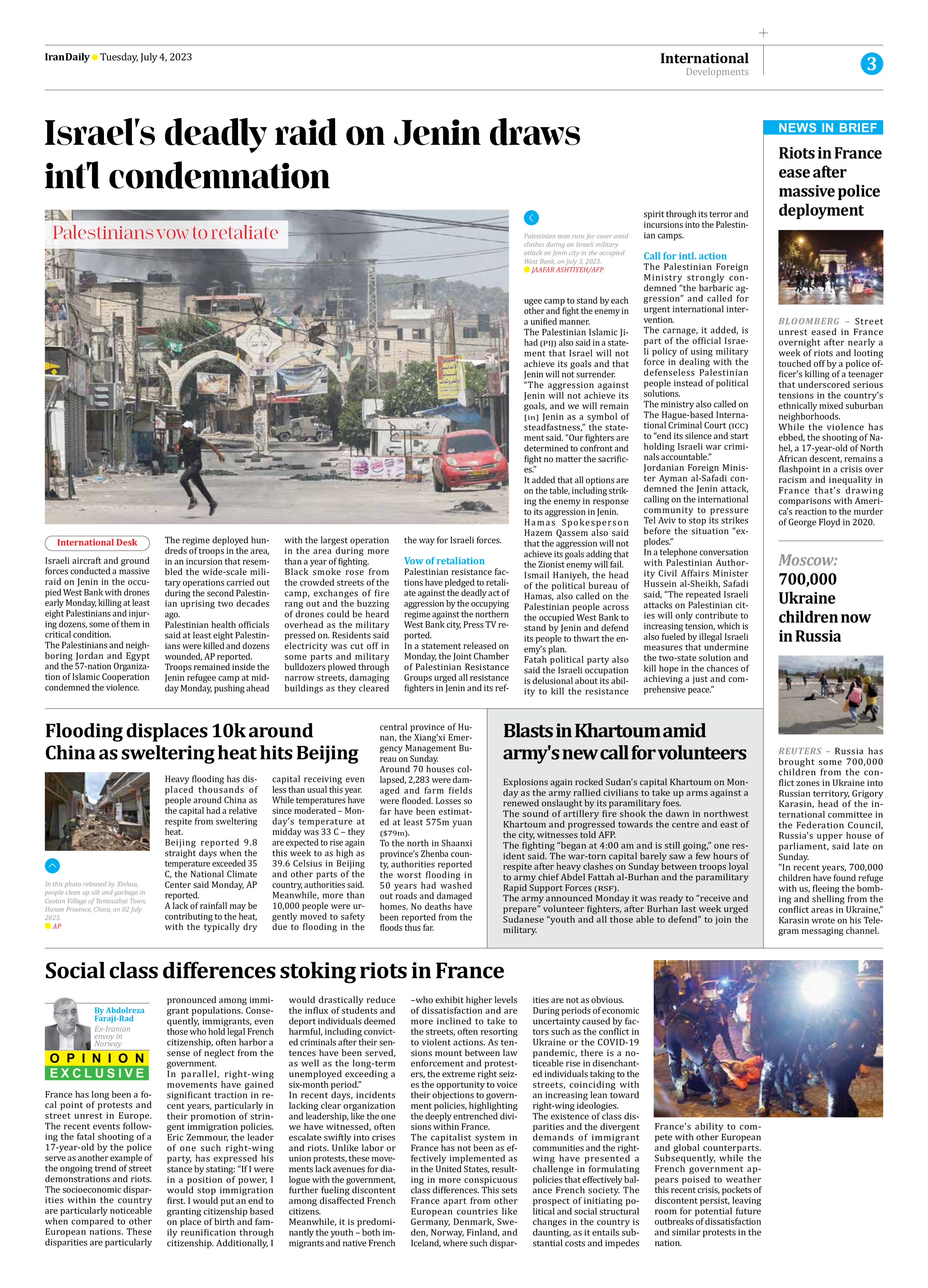
Social class differences stoking riots in France
By Abdolreza Faraji-Rad
Ex-Iranian envoy in Norway
France has long been a focal point of protests and street unrest in Europe. The recent events following the fatal shooting of a 17-year-old by the police serve as another example of the ongoing trend of street demonstrations and riots. The socioeconomic disparities within the country are particularly noticeable when compared to other European nations. These disparities are particularly pronounced among immigrant populations. Consequently, immigrants, even those who hold legal French citizenship, often harbor a sense of neglect from the government.
In parallel, right-wing movements have gained significant traction in recent years, particularly in their promotion of stringent immigration policies. Eric Zemmour, the leader of one such right-wing party, has expressed his stance by stating: “If I were in a position of power, I would stop immigration first. I would put an end to granting citizenship based on place of birth and family reunification through citizenship. Additionally, I would drastically reduce the influx of students and deport individuals deemed harmful, including convicted criminals after their sentences have been served, as well as the long-term unemployed exceeding a six-month period.”
In recent days, incidents lacking clear organization and leadership, like the one we have witnessed, often escalate swiftly into crises and riots. Unlike labor or union protests, these movements lack avenues for dialogue with the government, further fueling discontent among disaffected French citizens.
Meanwhile, it is predominantly the youth – both immigrants and native French –who exhibit higher levels of dissatisfaction and are more inclined to take to the streets, often resorting to violent actions. As tensions mount between law enforcement and protesters, the extreme right seizes the opportunity to voice their objections to government policies, highlighting the deeply entrenched divisions within France.
The capitalist system in France has not been as effectively implemented as in the United States, resulting in more conspicuous class differences. This sets France apart from other European countries like Germany, Denmark, Sweden, Norway, Finland, and Iceland, where such disparities are not as obvious.
During periods of economic uncertainty caused by factors such as the conflict in Ukraine or the COVID-19 pandemic, there is a noticeable rise in disenchanted individuals taking to the streets, coinciding with an increasing lean toward right-wing ideologies.
The existence of class disparities and the divergent demands of immigrant communities and the right-wing have presented a challenge in formulating policies that effectively balance French society. The prospect of initiating political and social structural changes in the country is daunting, as it entails substantial costs and impedes France’s ability to compete with other European and global counterparts. Subsequently, while the French government appears poised to weather this recent crisis, pockets of discontent persist, leaving room for potential future outbreaks of dissatisfaction and similar protests in the nation.







